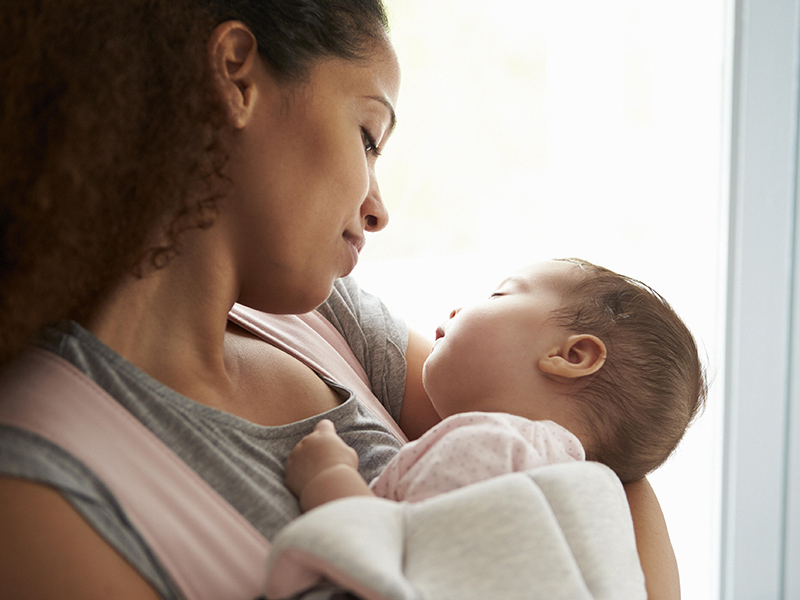Trust is an essential building block for a healthy sense of self. For babies, this means meeting their needs—feeding, diapering, holding, rocking, swaying, calming, comforting—the list goes on. If your infant’s needs are not met, they may become fearful and anxious. However, when you do meet your baby’s needs, you are helping lay the foundation for healthy emotional development.
Make sure you are meeting your baby’s physical, social and emotional needs in a consistent and caring way. This communicates to your baby that you can be counted on. Your baby will start to expect that from other relationships as well.
Erik Erikson, a developmental psychologist, researched the importance of trust in infancy. He noted that when caregivers are a consistent source of comfort, food, and affection, an infant learns trust. The baby develops a belief that others are dependable and reliable. If caregivers are neglectful the infant learns mistrust. The baby then develops a belief that the world is an unpredictable, undependable, and possibly a dangerous place. Development of mistrust can lead to a child’s feelings of frustration, suspicion, withdrawal and a lack of confidence as they grow.
Some parents think that if you give an infant too much attention, you will spoil them. This is not true. You want to be very responsive to your infant. Getting good at reading baby’s nonverbal and verbal cues (or signs) is key to being able to meet your baby’s needs quickly and consistently. Crying is often a late cue when baby is hungry or tired. Get to know other ways baby is communicating with you. Respond with the message that you see and hear them, even if you can’t meet their need right away. Your job is to build connection and trust in a consistent way.
Tips for helping your baby learn trust
- Learn to read baby’s cues, both verbal and nonverbal signs of what they need.
- Respond to your baby’s needs as promptly as you can. We’re only human, but our best efforts go a long way.
- When you need a break, find a way to take it. When you’re stressed and can’t provide positive interaction, it’ll benefit everyone if you get some time to yourself.
Babies learn to trust based upon the consistency of having their needs met. If your child receives nurturing care at this stage, they will have a healthy sense of safety, security, self-worth and self-esteem.
Learn more
- Why your baby may be crying, and tips for soothing
- The best toy for your baby is your attention
- Can you spoil a baby, or is that a myth?
…
Posted In Children's, Parenting, Women's
